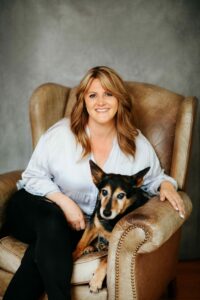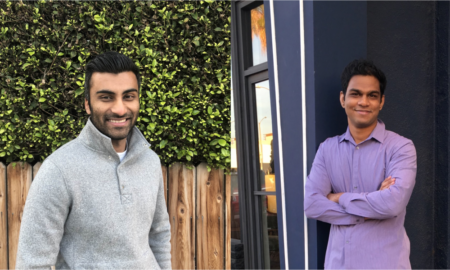
Today we’d like to introduce you to Jamie Murray.
Hi Jamie, we’re thrilled to have a chance to learn your story today. So, before we get into specifics, maybe you can briefly walk us through how you got to where you are today?
I grew up in very rural north Texas, just outside of Wichita Falls, I become a mother in high school, and I have been bucking the system ever since. I grew up playing outside, roaming acres of Mesquite trees and rattlesnakes, spending entire days writing stories in my head and reading. My parents were quite dysfunctional, my father an alcoholic with mental illness and my mother with no support system just trying to keep us alive and fed. As any child of an alcoholic knows, it definitely formed many of the patterns I have had to examine and reconstruct as an adult. It gave me the grit I needed to get through life, but it also left me with a lot of self-worth issues to work through. Being the child of a parent with mental illness has taught me an emotional intelligence most adults do not have, but it also handed me a tremendous amount of emotional responsibility for others. I’ve learned to embrace the strengths of my childhood and rewrite the pieces that no longer serve me well.
Would you say it’s been a smooth road, and if not, what are some of the biggest challenges you’ve faced along the way?
My twenties were all about survival. I worked my way through undergraduate and graduate school at Texas Woman’s University in Denton. I raised my son on my own. I entered in and out of an unhealthy long-term relationship for many years, and I allowed it to interfere with being emotionally present for my son much of the time. I carry a lot of guilt of that relationship because I let it carry on for far too many years and during my son’s formative years. I was trying to grow up myself while also raising a small human being. I did some things really well, and I did some things I still struggle to forgive myself for. When you become a parent so young, you have to learn everything with little eyes watching your every move. It often feels like every mistake you make is on display.
My thirties were all about raising our blended family. When I met my husband, I had a twelve-year-old, and he had two toddlers. We became a family quickly, only to just as quickly realize how hard creating a blended family can really be. My husband and I both had a lot of unhealed traumas in our past. Our unhealed parts made blending a family that much more difficult. Those first few years of our family were really hard, and I often found myself wondering if I had just caused more harm than good.
My forties are shaping up to be just as challenging, but I am so much healthier, stronger and healed now. I have done the work on myself. I have accepted that I can truly only control myself. While that seems like such a simple concept, I spent the first four decades of my life trying to fix everyone around me. I have much stronger boundaries now, and I love myself now in a way I never have before. It’s not sexy, its the cliché’s we hear every day, but when you finally get what they all mean, the pressure of life eases up in a way I have never felt before now.
Can you tell our readers more about what you do and what you think sets you apart from others?Today, I am still involved in the daily operations of the commercial construction company I run with my husband in San Antonio, TX. I am also building a brand centered around saying out loud what blended families all over the world are managing in silence.
My brand, How Many Kids Do You Have? is teaching the world that our modern blended families are critical to the success of future generations. What we are doing is important. Blended families are a critical component to the overall health and well-being of our future generations. Creating a bonded blended family takes time, decades even. Our worlds are constantly shifting and changing, and not even by our own choices. We are managing children in multiple homes, children with absentee parents, and even the “our” babies in the mix.
Nothing is easy in a blended family. Our timelines are different. Our histories are different, our hurts are different. In a blended family, we aren’t just blending dishes and furniture. We are blending chaos, resentments, jealousies, unresolved feelings, and very often traumas.
I’ve come to appreciate that our biggest challenge in raising blended families is facing our own personal growth so that we can be more whole and centered as leaders of these families. So often, it feels like we are on different growth timelines in a blended family because our backgrounds are so vastly different. You are growing. Your partner isn’t. Your partner steps up, but now you are tired of trying. Your biological kids are acting out. Your stepkids are in a tough season. The ex involved is driving you crazy, and you are struggling to remember why you agreed to create this family in the first place. Trying to explain to someone outside of a blended family why it’s so hard is near impossible.
What sets my brand and my book apart is that I did not set out to write a 7-step-guide to fixing your blended family. I set out to expose the very specific hardships that blended families face daily so that we can begin to accept how different raising our blended families really is. I set out to help us all accept that conflict will always exist in our homes. Our goal should not be “fixing” the conflict but rather embracing it. We need to use these hardships to teach the kids involved in our blended homes how to forgive and show grace and love through hard times.
What makes you happy?
Forever a country girl, my mini-farm is my happy place. I have twelve chickens who come by name when I call them, two goats that are about the cutest and sweetest things I’ve ever seen, three dogs that drive me crazy, and a cat that’s about the coolest dude I have ever met. My youngest daughter also has a Guinea pig and a hamster. We are animal people, no doubt. My favorite place in the world is drinking coffee on the porch, watching them all play with each other. People have always confused me. I’ve often felt they take more than they give. My animals want nothing more than food, water, and love and they give back love every single time they see me.
Contact Info:
- Email: jamie@howmanykidsdoyouhave.com
- Website: www.howmanykidsdoyouhave.com
- Instagram: @howmanykidsdoyouhave
- Facebook: @hmkdyh

















